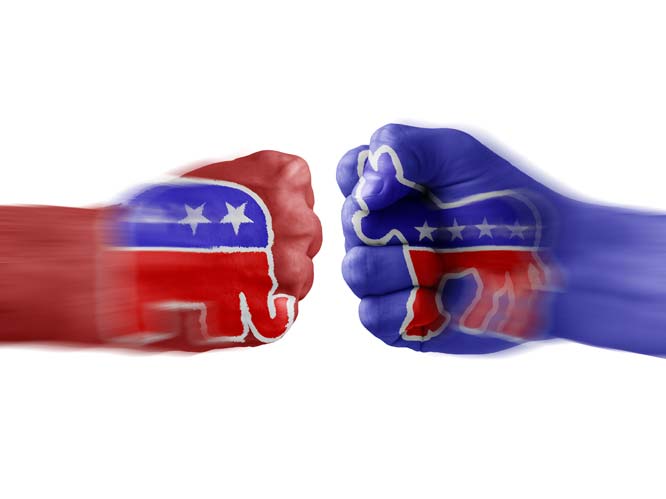Strap in, it's all going to get crazier.
More than a week after the final votes were cast (but not necessarily counted), it's now looking like the Democrats had a blue wave after all.
It didn't seem like it at first. Election night was more of an emotional roller coaster than you'd expect in a true rout. As of this writing, many of the Democrats' favorite candidates didn't win. And the Republican seawall was stronger and more important than people realized.
The Senate map was the most favorable that Republicans have seen in a century. Gerrymandering helped the GOP hold a lot of House seats and even gain in the Senate. So did demographic sorting, which can look like gerrymandering but isn't.
But the fact remains: The GOP had the worst midterms since Watergate. Democratic gains among young people, the college-educated and, in particular, suburban Republican defectors were historic and will have long-lasting consequences.
The GOP coalition is shrinking and aging. The Democratic coalition is growing and getting younger.
But it still doesn't quite feel like it, in part because President Trump refused to follow his predecessors' example and admit defeat.
In 2006, under similar circumstances, President George W. Bush conceded he took a "thumpin'." In 2010, Obama acknowledged he was "shellacked."
Trump, on the other hand, called the results a "tremendous success" and a "big victory" proving that the American people "like me."
It's dawning on Democrats that they had a big night. The challenge, however, is that it doesn't mean much in the short term. Nancy Pelosi, the presumptive incoming speaker of the House, can't do much to "check" Trump legislatively.
This puts the Democrats in a bind similar to the one the GOP was in under Obama. A common talking point on the populist right is that the establishment "over-promised and under-delivered" during the Obama presidency. And that's true.
But so did the populists. Both factions promised that Congress could "stop" Obama and repeal Obamacare if they just had enough votes, or if enough "RINOs" went along with a government shutdown. It wasn't true. And that fueled an enormous amount of resentment on the right -- resentment that cleared a path for Trump.
Now it's the Democrats' turn. According to exit polls, the vast majority of Democrats favor impeaching Trump now. Many Democrats avoided talking about impeachment, but they vowed to "hold Trump accountable."
To be sure, the Democrats can investigate the president with all the intensity of a zealous prison guard snapping on his rubber glove to search for smuggled contraband. But that won't stop Trump from dominating virtually every news cycle and occupying the headspace of liberals on a daily basis for the next two years. Nor will it weaken the resolve of Trump's base to rally to his defense.
The things Trump does that most enflame liberal passions are beyond the Democrats' power to check. He can still tweet and troll the media with abandon. He can still use executive authority on immigration. And he can still send an unprecedented number of judges over Pelosi's head to the Senate. (Gird your loins now for the impotent Democratic rage that would follow if Trump gets a third Supreme Court pick.)
Pelosi may want to hold off on impeachment proceedings, at least until special counsel Robert Mueller releases his report. But it's doubtful the Democratic base shares her patience. And it remains unlikely that Mueller will find anything that would induce a third of Senate Republicans to vote to remove Trump from office. (Removal requires 67 Senate votes.)
This could create the same dynamic that led 17 Republicans to throw their hats into the ring in the 2016 presidential primaries. The Obama team poured attention on Trump because they thought it would make the GOP look bad. Instead, they elevated him. It's likely Trump could pursue the same strategy with some Democratic firebrand.
Trump never won a majority of primary votes. He merely had a strong and loyal enough following to get a plurality in a divided field. The bigger the field, the fewer votes you need to win. The greater the passion in the base, the more incentive there is to pander to it.
And that's why it's all going to get even crazier.
(COMMENT, PLEASE, BELOW)
Jonah Goldberg is a fellow at the American Enterprise Institute and editor-at-large of National Review Online.



 Contact The Editor
Contact The Editor
 Articles By This Author
Articles By This Author